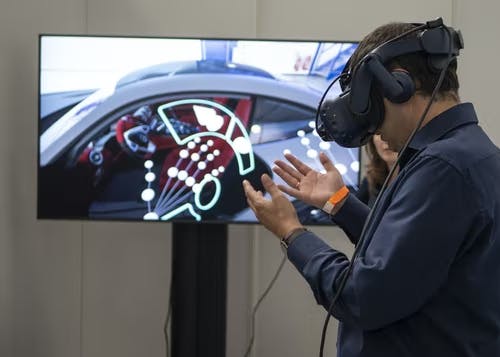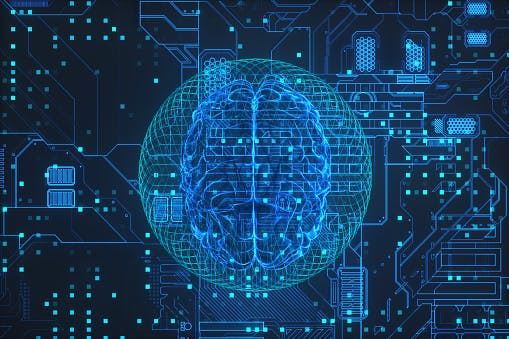There has been the recent hype about the Metaverse. Technologists have seen the future in the Metaverse and are working to make the experience even better. But how can they do this, and with what technologies?
Well, let's find out.
Many people have associated the Metaverse with just Virtual Reality and Augmented Reality technologies. To make the Metaverse have that deep connectivity and a replica of the digital world, the Metaverse has to go beyond Virtual and Augmented Reality. These technologies could take the Metaverse close to being like our natural world. These technologies include:
Mixed Reality
Web 3 and Blockchain Technology
Artificial Intelligence
Brain-computer-interfaces
Mobile device processors
This article will treat these technologies and discuss how they will take the Metaverse to be like the real world.
Mixed Reality

There's a general knowledge that Mixed Reality combines Virtual Reality and Augmented Reality. I chose to use "Mixed Reality" instead of "Virtual Reality and Augmented Reality." Using the latter phrase will cancel the idea of Augmented Reality because an establishment of Virtual Reality already makes Augmented Reality irrelevant. I'll tell you why.
Virtual Reality is the creation of a virtual environment where you can engage. This means that you have a representative in an unreal world. In contrast, Augmented Reality is the use of virtual objects in your natural environment. But when you are already in a virtual environment, what is the relevance of augmented reality when there's no natural environment to lay any virtual object? Hence, the choice of Mixed Reality.
With Mixed Reality, you have a super blend of the two. It makes the metaverse experience more immersive because you're engaging with your physical environment but manipulating this environment via a virtual environment. Yes, reread it. You can access an overlaid virtual environment on your physical environment with your headset and control objects in this virtual environment and still see an effect in the physical environment.
Imagine seeing an empty cup and jug filled with water in your room via a headset. You pick this jug and pour water into your cup. Then when you take off this headset, you realize that only the jug of water was present in the room, and your room is flooded with this water that you poured into the cup in your virtual environment. That is a Mixed reality. With Mixed Reality, the Metaverse becomes nostalgic and immersive. Who wouldn't love being in an exact copy of her room in the Metaverse? I, for one, love that kind of personalization.
Web 3 and Blockchain Technology

The Metaverses of today are still centralized. And one of the disadvantages that users are clamoring about is using their data for things they didn't approve of. This is where Web 3 comes in. With Web 3, whatever is on the Metaverse is no longer owned by a central authority but by the users themselves.
This can't happen without Blockchain. Of course, decentralization and Blockchain are tied together. Decentralization in the Metaverse describes everything being owned and created by the users, from the digital assets (Avatars and virtual worlds) down to these users' experiences. The good thing about this is that every contributor will be rewarded both as players and creators of the Metaverse. You might ask, how is it even better since the users have all control? Won't the experience be even worse? The answer to this question is Artificial Intelligence, and we will be treating it next.
Artificial Intelligence

In simple terms, Artificial Intelligence is a broad field that describes the automation of tasks that humans can do. Narrowing it down to how it is applied to the Metaverse space. To create personalized experiences in the Metaverse, artificial intelligence is highly essential. Let's quickly dive into personalized experiences with an example.
When you watch youtube, you notice that the youtube feed gets filled with similar videos in the same category. I remember when I started watching horror recap movies on YouTube. Later, my YouTube feed was filled with recap movies in the horror category, and it was addictive and terrifying. I had to search for motivational videos and forced myself to watch just these videos, and after some time, my feed was filled with these motivational videos. It wouldn't be fair to be interested in these motivational videos but will be served with videos in categories I don't like, like the sports and the rest. You understand what it means to have a personalized experience, right?
Now how can this be done for the metaverse space? Because this Metaverse will soon be owned and created by actual users and not by a centralized authority, machine learning is needed to automate the gathering of all data created by users and then send this data to users who are interested in it. If the machine understands that I am only interested in metaverse spaces with horror experiences, it will start recommending other metaverse spaces containing these horror experiences. And who wouldn't love this experience?!
There are even more use cases of Artificial Intelligence in the Metaverse. Some of them include:
Creation of a digital environment or object with just the say of a few words.
Creating Avatars
Identifying harmful behaviors
Giving life to digital characters in the space
Mapping body movements
Brain-Computer Interfaces

Have you thought of operating your laptop without using your fingers on your mouse and keyboard or even without using words to control your computer? What if I told you that you could use your mind?
To make the Metaverse more advanced and immersive, you can use your mind to prompt desired actions. But you can only do this with the integration of brain-computer interfaces. With brain-computer interfaces, your brain gets signals from your brain that read intent and then convert this intent to actions. It is not a mind-reader. You have to be willing to trigger these actions by subjecting your brain to think of what you want for this computer to identify this signal.
There are four stages of brain-computer interfaces: signal acquisition, feature extraction, feature translation, and device output. In signal acquisition, the machine extracts signals from your brain. During feature extraction, it uses knowledge from the data it was trained with to identify any intent in the brain signals. It goes on to the next step to translate this intent. Here it finds out if you want to create a digital environment or if you want to move a digital object. Whatever it translates this to, it does the action for you.
The brain-computer interface technology is still in its early stages, but there's a whole future ahead. Soon, you won't need to do anything in the Metaverse with the touch of a finger or the sound of a word.
Mobile Device Processors

Currently, headsets are still being used. To use more portable devices like our normal-looking glasses, fast mobile processors need to be integrated into these smart glasses and occupy minimal space. If you've joined any metaverse spaces, you will notice that the quality of the visuals is still very low. For the visuals to be sharp and more appealing, the content will be less delayed for the time you're shown. Mobile processors with high refresh rates, high frames per second, low latency, and hyper-realistic Reality will be needed.
So there you have it, the top technologies to make the experience in the Metaverse seamless. Before I conclude, I would love to treat some questions some friends asked me regarding the Metaverse.
Follow me…
Frequently Asked Questions about the Metaverse

How can I make money from the Metaverse?
There are several ways to make money in the Metaverse. The most popular route, for now, is being a creator. You could offer skills like XR(Mixed Reality) design, Blockchain development, Machine learning, Metaverse product management, and Metaverse architecture. The skill opportunities in this field are countless. To get a grasp of more of these skills, you could check out this article.
Can we ever see a Metaverse as realistic as the movie "Ready Player One"?
Very possible but it might take time. Having metaverse spaces as immersive as this movie would take many stages and time, too,, but we will surely get there.
Won't the Metaverse make youths "counter-productive" humans?
This depends on the purpose of the youth. If the youth stays up all day exploring the metaverse space without contributing to it, then we could call this counter-productiveness. This is why I'm glad at the decentralization that would meet the Metaverse space soon because that way, everyone who participates will be earning something.
But while the metaverse space is still being worked on, youths could acquire skills that they can offer to companies that are working on the Metaverse and make money from it. Check out the first question for more details.
Please take note that I treated productivity here as earning money. Many people have different definitions of usefulness and productivity.
How's the Metaverse going to decentralize finance and not be backed by a currency?
This question is a bit tricky because the Metaverse is not decentralizing finance. Instead, the Metaverse is being decentralized by blockchain technology. If decentralized finance wants to be integrated into the Metaverse, probably to earn for the contributors, then cryptocurrency must be involved. You can't talk about finance without calling out something that acts as an exchange of value which is what is described as currency.
So in summarizing the answer to this question, the Metaverse is not decentralizing finance and if DEFI has to be integrated into the Metaverse, then it has to be backed by a currency.
CONCLUSION
The hype around the Metaverse started in 2021 so it's still at its earliest stages. For it to be close to how the real world looks, then these top technologies that I've discussed are very essential. There might be more technologies though but these listed ones are very important if we want to see a metaverse as immersive and engaging as the movie, "Ready Player One."
Please react to this post if you love it and if you have any questions or contributions, I'll be looking forward to your comment. I would also love to read how this post helped you deeply understand the Metaverse
